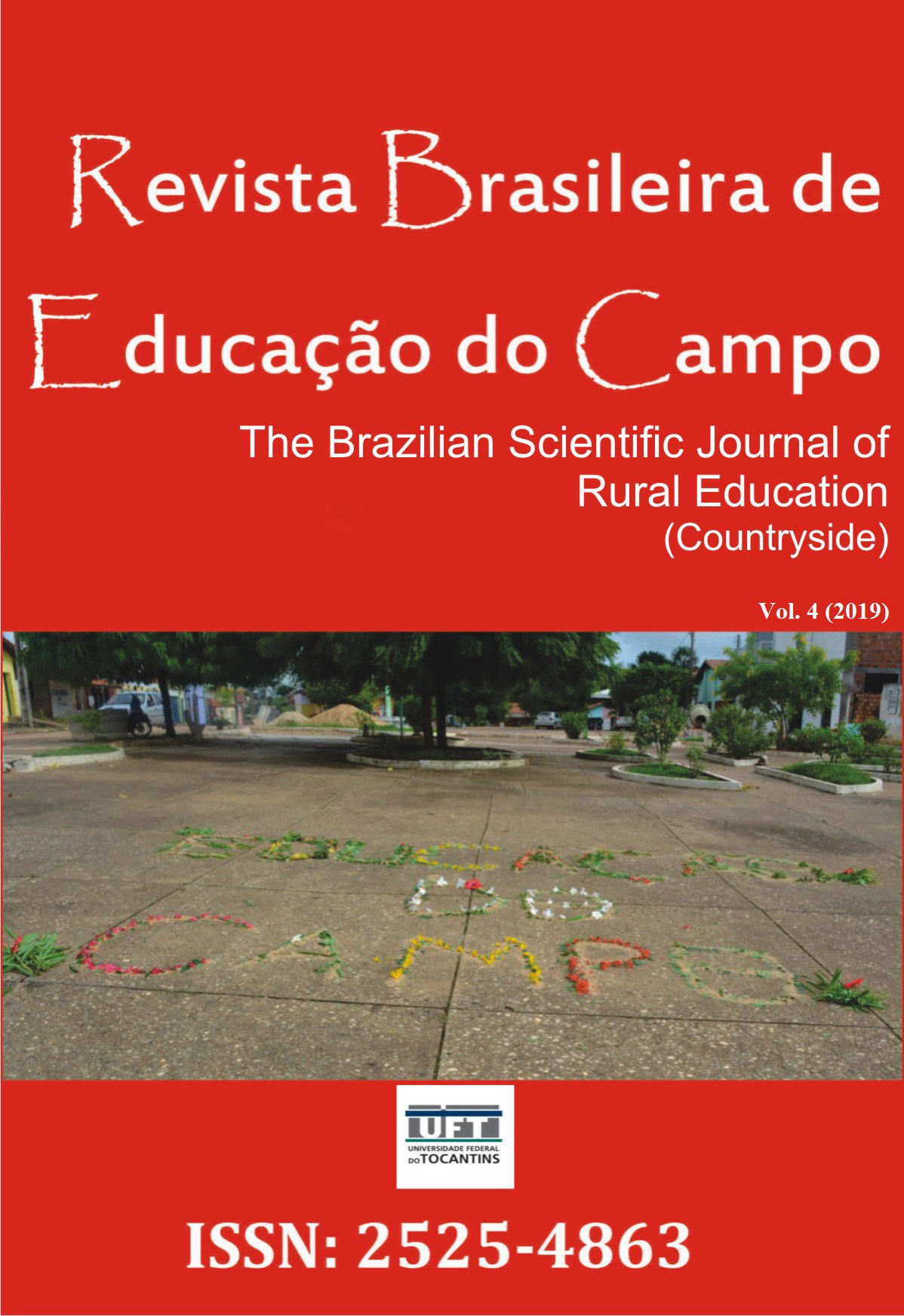Egress from a settlement school: where are the children of Rural Education?
DOI:
https://doi.org/10.20873/uft.rbec.v4e6042Abstract
ABSTRACT. The text - and the research that originated it - starts from an apparently simple question: Where are the children of Rural Education? Where do our pedagogical, political and social efforts go when we devote ourselves to an education in the countryside? Based on the challenging question, the text recomposes information about the departed from the State School of Primary Education October 29, Settlement March 16, in the municipality of Pontão, north of Rio Grande do Sul, in the time cut from 1992 to 2014, totaling 413 subjects surveyed. The text locates the School October 29, emphasizing its four historical periods and presenting data about the graduates, obtained through the Focal Groups procedure, starting from two key categories: schooling and profession. The data point to encouraging prospects: with rare exceptions, family succession on farms is occurring. Young farmers, in their large majority with secondary education, are supporting family farming, with actions for agricultural production and crop diversification, guaranteeing the second generation of farmers in the field. It concludes that the professional and formative success of the children of rural education also represents the success of the project and the pertinence of its existence as a counterpoint and alternative to the dominant schooling model.
Downloads
References
Alves, G. L. (2009). Educação no campo: recortes no tempo e no espaço. Coleção educação contemporânea. Campinas, SP: Autores Associados.
Bonamigo, C. (2007). Pedagogias que brotam da terra: um estudo sobre práticas educativas do campo (Tese de Doutorado). Universidade Federal do Rio Grande do Sul, Porto Alegre.
Brasil. (2002). Resolução CNE/CEB n. 1, de 3 de abril de 2002: institui diretrizes operacionais para a educação básica nas escolas do campo. Recuperado de: http:// www.epsjv.fiocruz.br/sites/default/files/documentos/.../resolucao_ceb_1-2002.pdf
Brasil. (2010). Decreto 7.352/2010. Dispõe sobre a política de Educação do Campo e o Programa Nacional de Educação na Reforma Agrária. Recuperado de: http://www.planalto.gov.br/ccivil_03/_ato2007-2010/2010/decreto/d7352.htm
Bomfim. L. A. (2009) Grupos focais: conceitos, procedimentos e reflexões baseadas em experiências com o uso da técnica em pesquisas de saúde. Physis. Revista de Saúde Coletiva, 19(3), 777-796.
Caldart, R. S. (2002). Por uma Educação do Campo: traços de uma identidade em construção. Educação do Campo: identidade e políticas públicas. Brasília: DF.
Caldart, R. S. (2003). A Escola do Campo em Movimento. Currículo sem Fronteiras, 3(1), 60-81.
Caldart, R. S. (2004). Pedagogia do Movimento Sem Terra. São Paulo, SP: Expressão Popular.
Caldart, R. S. (2012). Educação do Campo. In Caldart, R., Pereira, I., Alentejano, P., & Frigotto, G. (Orgs.). Dicionário da Educação do Campo (pp. 259-267). São Paulo, Rio de Janeiro – Escola Politécnica de Saúde Joaquim Venâncio: Expressão Popular.
Molina, M. C., & Freitas, H. C. A. (2011). Avanços e desafios na construção da Educação do Campo. Em Aberto, 24(85), 17-31.
Molina, M. C., & Sá, L. (2012). Escola do Campo. In Caldart, R., Pereira, I., Alentejano, P., & Frigotto, G. (Orgs.). Dicionário da Educação do Campo (pp. 326 - 333). São Paulo, Rio de Janeiro – Escola Politécnica de Saúde Joaquim Venâncio: Expressão Popular.
Rio Grande do Sul (2017). Secretaria de Educação. Departamento de Planejamento. Censo Escolar da Educação Básica – 2017. Recuperado de: http://servicos.educacao.rs.gov.br/pse/srv/estatisticas.jsp?ACAO=acao1
Rio Grande do Sul (2016). Secretaria de Educação. Departamento Pedagógico / SEDUC. Reestruturação curricular Ensino Fundamental e Ensino Médio - RS 2016. Recuperado de: http://www.educacao.rs.gov.br/upload/arquivos/201702/09164831-reestruturacao-curricular-ensino-fundamental-e-medio-2016-documento-orientador.pdf
Published
How to Cite
Issue
Section
License
Proposal for Copyright Notice Creative Commons
1. Policy Proposal to Open Access Journals
Authors who publish with this journal agree to the following terms:
A. Authors retain copyright and grant the journal right of first publication with the work simultaneously licensed under the Creative Commons Attribution License that allows sharing the work with recognition of its initial publication in this journal.
B. Authors are able to take on additional contracts separately, non-exclusive distribution of the version of the paper published in this journal (ex .: publish in institutional repository or as a book), with an acknowledgment of its initial publication in this journal.
C. Authors are permitted and encouraged to post their work online (eg .: in institutional repositories or on their website) at any point before or during the editorial process, as it can lead to productive exchanges, as well as increase the impact and the citation of published work (See the Effect of Open Access).















